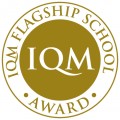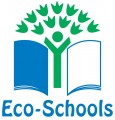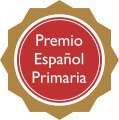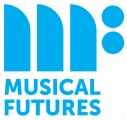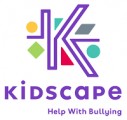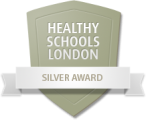Intent
Within an ever changing and technological world, Shoreditch Park Primary School understands and values the importance of teaching Computing from a young age. We acknowledge that future generations will rely heavily on their computational confidence and digital skills in order to support their progress within their chosen career paths. Therefore, it is our school’s aim to equip children with the relevant skills and knowledge that is required core areas of Computing and to offer a broad and balanced approach to providing quality first teaching of this subject. Computing is an integral part to a child’s education and everyday life. Therefore, we intend to support our pupils to access and understand the core principles of this subject through engaging and cross-curricular opportunities.
Key Stage 1 pupils should be taught to:
- Understand what algorithms are; how they are implemented as programs on digital devices; and that programs execute by following precise and unambiguous instructions
- Create and debug simple programs
- Use logical reasoning to predict the behaviour of simple programs
- Use technology purposefully to create, organise, store, manipulate and retrieve digital content
- Recognise common uses of information technology beyond school
- Use technology safely and respectfully, keeping personal information private; identify where to go for help and support when they have concerns about content or contact on the internet or other online technologies
Key Stage 2 pupils should be taught to:
- Design, write and debug programs that accomplish specific goals, including controlling or simulating physical systems; solve problems by decomposing them into smaller parts
- Use sequence, selection, and repetition in programs; work with variables and various forms of input and output
- Use logical reasoning to explain how some simple algorithms work and to detect and correct errors in algorithms and programs
- Understand computer networks including the internet; how they can provide multiple services, such as the world wide web; and the opportunities they offer for communication and collaboration
- Use search technologies effectively, appreciate how results are selected and ranked, and be discerning in evaluating digital content
- Select, use and combine a variety of software (including internet services) on a range of digital devices to design and create a range of programs, systems and content that accomplish given goals, including collecting, analysing, evaluating and presenting data and information
Information and communication technology is an integral part of the national curriculum and is a key skill for everyday life. Computers, tablets, programmable robots, digital and video cameras are a few of the tools that can be used to acquire, organise, store, manipulate, interpret, communicate and present information. At Shoreditch Park Primary School, we recognise that pupils are entitled to quality hardware and software and a structured and progressive approach to the learning of the skills needed to enable them to use it effectively.
Implementation
In order to achieve the outlined intentions, the Computing curriculum is continuously reviewed through monitoring and evaluation by the Subject Leader and Senior Leadership Team. Teachers demonstrate a high level of enthusiasm for the subject content and their expectations of the pupils. These are based on the three core areas of Computing in mind:
- Computer Science – the understanding of coding and programming across a range of physical devices and digital resources.
- Information Technology – the range of skills required to operate and manipulate specific programs, systems, and content.
- Digital Literacy – the knowledge required to use technology safely and to evaluate and react to any potential risks of the online/digital world.
The National Curriculum provides the basis for the progression grids. At Shoreditch Park Primary School we use the Switched On computing and Lego WeDo schemes to teach computing - placing a strong emphasis on problem solving (debugging) and manipulating systems. Within our computing lessons we learn about digital literacy (E-Safety), information technology and computer science. At Shoreditch Park we believe that computational thinking is vital in enabling children to understand the world around them and to ensure that all children are able to access a society which is ever increasingly becoming technology dependent. Computational thinking allows children to solve problems, design and control technologies and to work at their creative best whilst also allowing children the opportunity to apply their knowledge of maths and literacy. Pupils who are able to think computationally are more able to conceptualise, understand and use computer based technologies – better preparing them but their future.
Each half term a different year group learns computing through Lego Wedo, an engaging and challenging curriculum which teaches the following key learning values:
- Investigating, modelling and designing solutions
- Engage pupils in science by making it real and relevant
- Basic computing skills
- Collaboration and presentation skills
- Critical thinking and problem-solving
Find out more about the Lego WeDo curriculum and Rising Stars' Switched on Computing.
Impact
Within Computing we encourage a creative and collaborative environment in which pupils can learn to express and challenge themselves. The success of the curriculum itself will be assessed via the evidence of work uploaded on Google Classroom, conducting regular pupil voice sessions, lesson observations and skills audits. This will then inform future adaptions of the schemes of work and help to ensure that progression is evident throughout school.
In order to demonstrate that we have accomplished our aims, pupils at Shoreditch Park Primary School should:
- Be enthusiastic and confident in their approach towards Computing.
- Present as competent and adaptable ‘Computational Thinkers’ who are able to use identified concepts and approaches in all of their learning.
- Be able to identify the source of problems and work with perseverance to ‘debug’ them.
- Create and evaluate their own project work.
- Have a secure understanding of the positive applications and specific risks associated with a broad range of digital technology.
- Transition to secondary school with a keen interest in the continued learning of this subject.
Computing at Shoreditch Park
Examples of Computing in Key Stage 1
Year 2 have been taught to use the programming tool, Lego WeDo.
Year 1 have been learning to become digital publishers and have started creating their own E-book.
Examples of Computing in Key Stage 2
Year 3 have been focusing on the topic of ‘we are opinion pollsters’. In this unit, pupils have created their own online opinion poll, seeked responses and then analysed the results, creating charts showing data and a brief illustrated report.
Year 4 have been focusing on the topic of 'we are bloggers' and developing understanding of digital literacy, while building resilience of how to stay safe online. They have used our digital blogging tool on the Reading Cloud to write about their experiences and enjoyment of reading.


















